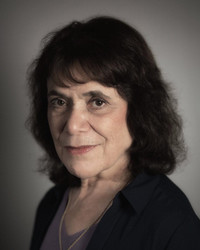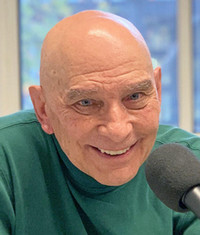Dickson Emeritus Professorship Award
The Dickson Emeritus Professor Award acknowledges, publicizes, and enables the creative and innovative work that our faculty continue to do after retiring. Up to three awards are given annually. The award may be used for activities in service, research (including creative works and performances) or teaching. Dickson Professors are expected to make the results of their work available to the campus or the wider community. See Award Guidelines for more information.
Current Dickson Emeritus Professors (2024-25):
Catherine R. Cooper (Psychology Department)
Stackable Credentials and Career Ladders into Healthcare Professions: Mapping Challenges and Resources for Low-Income and Underrepresented Students

In her study, Professor Cooper will conduct interviews with students, educators, and healthcare providers at the student- and organizational-level to study challenges in building stackable credentials that create ladders for low-income students to advance from high school through community college-, bachelor’s- and postgraduate degrees to become successful healthcare professionals.
For many low-income and underrepresented students, being able to move out of and back into school while accumulating "stackable credentials" allows them to ascend their career ladders and earn money to support their families. Such flexibility has become even more significant during the pandemic and post-pandemic times. This Dickson Award builds on and will extend Professor Cooper's ongoing collaborations to map, through interviews with students, educators, and healthcare providers, the student-level and organization-level challenges and resources in building stackable credentials and career ladders into the health professions, from high school through community college, bachelor’s, and post-graduate degrees and credentials. The project is designed to build synergies across research, practices, and policies to advance social justice in a crucial area of need.
G. William Domhoff (Sociology/Psychology)
Corporations and their Relationships to Policy-Oriented Nonprofit Organizations in the United States

Professor Domhoff proposes to expand his recent co-authored study on congressional legislative impacts of 250 corporations and six policy-oriented non-profits (foundations, think tanks, and policy discussion groups) in the U. S. to include 500 corporations and 93 non-profits. This network-based study should determine the degree to which “liberal leaning, centrist, and conservative leaning policy-oriented non-profits share directors in common with corporations and each other,” allowing a finer-grained understanding of how money impacts public policy in Congress.
